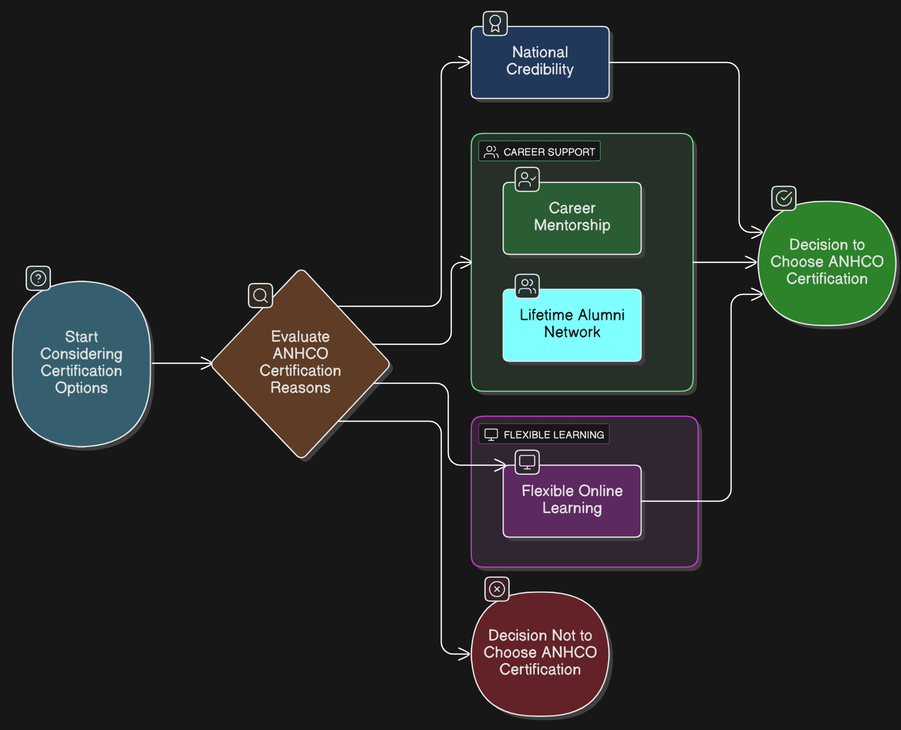The Ultimate Guide to Getting Health & Life Coaching Certification in Michigan: Everything You Need to Know in 2025-2026
Becoming a certified health and life coach in Michigan during 2025–2026 isn’t just a career choice — it’s a chance to create a purpose-driven business that transforms lives. With corporate wellness budgets expanding across Detroit, Ann Arbor, and Grand Rapids, certified coaches have become essential partners in organizational and community health programs.
In this detailed guide, you’ll learn how to get certified, what training involves, and how to build a profitable, sustainable coaching practice. We’ll also draw proven lessons from successful ANHCO-certified professionals across Florida, New York, and Georgia — states leading in wellness education and coaching system design.
1. Understanding Health & Life Coaching in Michigan
Health and life coaching in Michigan blends behavioral psychology, goal-setting science, and motivational interviewing. Coaches help clients make actionable progress — improving sleep, nutrition, resilience, and career balance. Unlike therapy, coaching focuses on measurable behavior change and forward action.
The American National Health Coaching Organization (ANHCO) certification is recognized across hospitals, corporations, and private practices. It’s identical in standard to what’s used in North Carolina and Maryland, giving graduates nationwide credibility.
Major healthcare systems such as Henry Ford Health and Corewell Health have begun embedding ANHCO-certified coaches within patient-care programs. This mirrors successful frameworks in Maine and Iowa, where coaching is now a recognized extension of preventive medicine.
Demand is surging. ANHCO’s 2024 report showed a 19% rise in Michigan-based wellness hiring — comparable to growth in Oregon and Delaware. As employers double down on holistic performance programs, certified coaches with outcome-based portfolios will continue to lead this shift.
2. Certification Pathways for Michigan Coaches
The ANHCO Health & Life Coaching Certification remains the most trusted credential in Michigan’s coaching ecosystem. It’s a 6–9 month guided journey that covers habit design, stress physiology, nutrition fundamentals, client accountability, and ethical coaching principles.
Most students in Michigan study online, through ANHCO’s digital platform that mirrors programs in New Hampshire and Rhode Island. Learners join interactive peer cohorts, complete practicum hours, and receive mentorship from industry professionals.
Graduates can later specialize in high-demand tracks such as executive performance coaching, holistic wellness, or mindset transformation, inspired by frameworks proven in Kentucky and Louisiana.
Michigan coaches benefit from ANHCO’s built-in practicum, requiring 50+ client hours — similar to Indiana and Illinois. These hours provide real-world experience, client case studies, and measurable impact documentation — which directly translate into employer credibility and portfolio strength.
If you’re pursuing dual credentials, you can integrate your certification with programs referenced in Oklahoma and Maine for multi-state flexibility.
3. Career & Income Outlook in Michigan
Michigan’s wellness and health-coaching industry is expanding faster than the national average. Certified coaches earn $60,000–$92,000 annually, with high performers crossing $110,000+ through workshops, group sessions, and corporate retainers.
According to data mirrored in Pennsylvania and Ohio, combining data-driven coaching with outcome tracking increases client retention by 30%.
Michigan’s leading employment zones — Detroit, Ann Arbor, and Grand Rapids — host numerous health-tech startups and hospital-linked wellness programs actively recruiting ANHCO graduates. Corporate opportunities are also growing within the automotive and tech sectors, following playbooks similar to those in Georgia and Texas.
Career diversification is a key advantage of certification. You can offer:
Corporate wellness programs for HR teams.
Post-rehabilitation coaching in medical settings.
Digital group sessions via telehealth platforms.
Executive coaching for stress, clarity, and leadership.
The most successful Michigan-based coaches continuously refresh their certifications and update methodologies through the Maryland continuing education framework.
What’s your biggest challenge in becoming a certified health or life coach in Michigan?
4. Why Choose ANHCO Certification in 2025–2026
The ANHCO certification offers a proven, research-backed, and ethically grounded curriculum trusted by professionals nationwide. Coaches across Michigan choose ANHCO for four major reasons:
National Credibility — It’s recognized by employers, insurers, and health systems, mirroring acceptance seen in Florida.
Career Mentorship — Graduates access 1:1 job-placement and client-acquisition support inspired by New Hampshire.
Flexible Online Learning — Complete at your pace with ongoing instructor feedback, a model shared with North Dakota.
Lifetime Alumni Network — Access collaboration hubs and peer referrals, identical to systems proven in Oregon.
ANHCO certification also teaches client lifecycle strategy, pricing optimization, and service packaging, which help Michigan coaches scale faster than self-taught professionals.
5. Building a Thriving Coaching Business in Michigan
Once certified, you can leverage ANHCO’s structure to create a scalable and profitable business in Michigan. The playbook below combines best practices from Illinois, Iowa, and Florida:
Step 1: Local Authority
Build a website featuring case studies, ANHCO affiliation badges, and Google Business listings.
Target keywords like “health coach Detroit” and “wellness programs Michigan.”
Step 2: Corporate Partnerships
Offer corporate workshops modeled after Texas’s successful group models.
Develop HR pilot programs with measurable outcomes.
Step 3: Digital Ecosystem
Launch a webinar series based on engagement strategies used in New Jersey.
Create digital courses that bundle 30-day coaching challenges and stress-reset templates.
Step 4: Retention Strategy
Establish peer accountability pods, a system popularized in Indiana.
Offer subscription-based programs for continuous progress tracking.
Step 5: Continuous Learning
Renew your certification every 3 years following standards similar to Maine.
Attend regional workshops or co-host community wellness events.
With consistent effort and smart positioning, you can build a six-figure practice in under two years — exactly what’s been achieved by ANHCO alumni in Georgia and Florida.
6 FAQs — Health & Life Coaching Certification in Michigan
-
It typically takes 6–9 months, depending on study pace and practicum completion. Many students follow flexible schedules like those in Rhode Island.
-
-
-
Expect $60K–$90K+, depending on niche and clientele. Coaches who integrate analytics-based reporting, as taught in Oregon, earn up to 30% more.
-
You’ll complete 12–20 continuing education hours every three years, through ANHCO or equivalent programs referenced in Maine.
-


